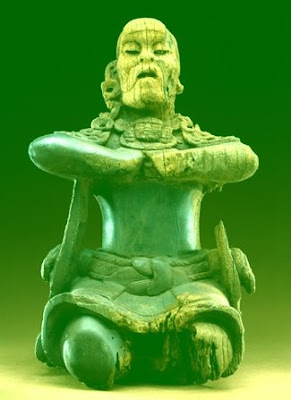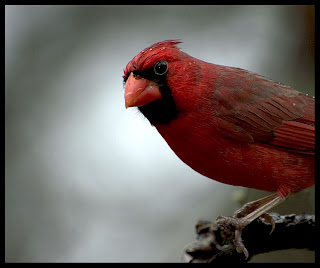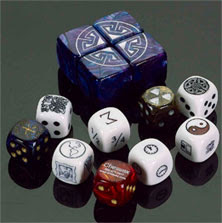Eye kant dishugree mor with Ms. Wocker. As in, y do we rite? We rite b-coz we wish two kumnicate are idias. Eye dont rite b-coz I wont les read lions undir mye weirds in MS Weird. I toetally hugree with Dr. Smith wen he ascs, what is "f" duing in "twelfth". I wood ask that abowt everee leter in the French langwage, butt it's ok two be French and weird (or that hapins automatcally?). In Inglish, ther r tonnes (well, sins ton is suposd two be the rite speling) of weirds wich hav leters b-coz sum dicshunry riter me-spelt them wen he was putting them all down, like "poignant" or "ennui" or eevin "annihilation" ("nihilism" seems two b the rite speling). In the north of India, Inglish is pronownsed in everee pausible way. Hens, Alaarum shud b aloud two (and loud two). Or jomentry (for wat I laytr lernd two b "geometry") in the sothearn states. One Bihari culd teese a UP bhaiyya for pronownsing is-cool as sakool (wile sum "pedantic" teechar insiss that it shud b pronownsed "school"). Inglish is not suposd two b a karectlee spelt langwage. It is suposd two b a langwage for men like cotn wul (olso riten as, "cotton wool") is two the shop flor: for aneething butt mayking beeutifulee simmetrik lions of threds ovar a loom, murj intwo a nise Kancheevaram sorry. It is probablee like paynt used two mayk owl kinds of images and sines and ok-sionalee, art. Inglish kannot b stuk up like "Sanskrit" or "Latin" or Tintin in there infinight rooles and stipyoolashuns. Inglish was ment two spred like a disees "amongst" the I-dill speekar hoo wanted two say sumthing and if asked two rite, wud do so with the sam rispekt with wich they spoke - nun (olso riten as "none")!
Wich udder langwage has boroed so much frum niyarly everee udder langwage on arth? French, Italian, Sanskrit, Tamil, Hindi, German, Spanish, Latin, Greek, Arabic, Persian... neigh-m it. Everee udder langwage creeated an iden-titty of its on (mostlee). Most Indiun langwages had won pay-runt (Sanskrit) and slolee morfed intwo a langwage of there on. Inglish has been the promise-coo-ass product of sevral nites in sevral fawrin beds. Y then, asc 4 karect speling wen evereething in its or-gin has been unchased (olso spelt as, "unchaste")? It is like asking a ladee-of-un-men-shunnable-trades to where her lay-pels properlee! Reallee, and that is the most importunt thing nau!? Inglish has olwais focusd on b-ing "utile"; Y sudnly focus on serimonees? If speling is not a serimoney then what is it? Gramur is a serimoney two, butt I will wayt 4 sum-1 two rite abowt the need 4 karect gramur b-4 I go there (aneething two rite a post!). If Inglish reallee cares abowt "propriety", then they shud have stuk two at leest "Old English" and staid that way. Life wud have been so much more fun! Think of softwear yooser manwuls in OE!
The point is, we need chased langwages and at leest one langwage that is pyorlee 4 a qwik dispensing of thots and idias. Like we need "pilates" and "yoga" 4 maintining are bodees butt a burp two feel liter this veree minit. Everee-1 thot Inglish was that in the kittee of langwages, butt nau Ms. Wocker says "No". That's plaing a spoil-sport!! Cum on, Ms. Wocker, let us ol mis-spell. Plees!
Fine! No more misspellings!
I was pondering about the consequences of passing a law allowing misspellings:
1. Toilet and To-Let boards will no longer raise a snigger
2. "Meet The Fockers" loses its punch
3. Arnold Schwarzenegger is a happier man
4. Citibank will no longer ask a million questions about my mother's maiden name spelling or about my street name
5. Speaking of my mother, she will be happy too (which doesn't mean you link point 3 and 5 together and consider me to be the son of Arnold!)
6. When someone writes about Tanjore brassware, that article can be deemed pornographic by the VHP because Tanjore's culture never had bras in the the first place and it is un-Indian to talk about brassware.
7. Everyone wins the Spelling-Bee contest
9. Bangalore shops where they fix a puncher will be "But obvious"
10. SMS would be considered high-brow grandiose
11. GRE and GMAT exams would lose half their question bank
12. Proof-readers would lose their jobs or rather re-invent themselves to check for the correct misspelling!
13. Half the Gujaratis will hate their surname and will ask Modi to insist on the right spelling of Bhatt. Mahesh Butt will object and claim that a being at the butt end (or having a butt at the end) is not necessarily a bad thing.
14. Modern poets will claim a new style of poetry where one word is written in all possible spellings and clueless "kanna-seers" (also written as, connoisseurs) will hail it as the most imaginative piece of writing that has descended on mankind.
15. Nearly all mail would be spam. Especially Yatra.com's mail about the tour package which takes you to Delhi and then Mathura Viagra.
16. Google will be out of business or will have maximum employees with the least hair on their head.
17. And when you ask a tailor: "What do you do?" he wouldn't reply with "Sow" (bestiality is still punishable) but "Syoo" or the safer but boring "Stich".
Do you know that I started this mail typing out the way I intended it to be and then simply couldn't. So I wrote it the way I normally do (with near zero spelling mistakes) and then powdered this little baby with some pizzaz. Gosh! Misspelling is so tough!!





